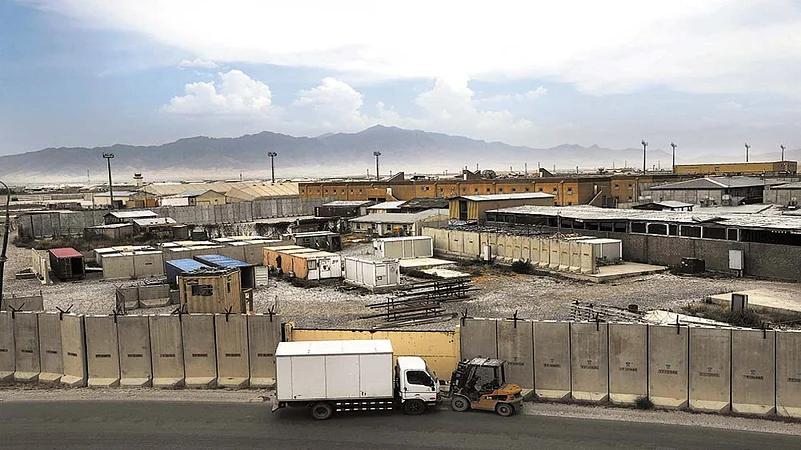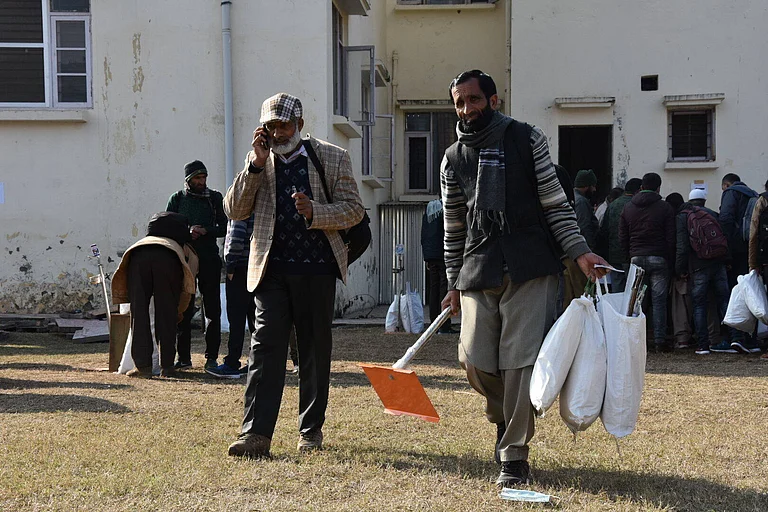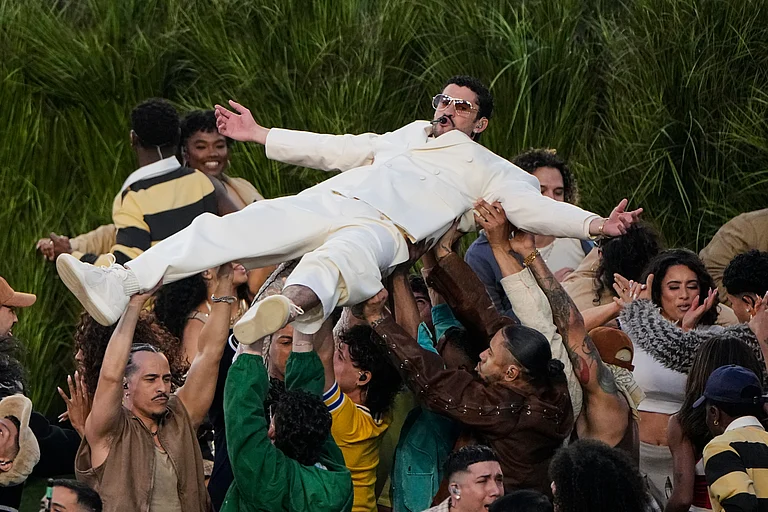Afghanistan torn between adversarial violence, has been roiling for a long time; now, with US and NATO troops finally leaving, the spectre of a civil war has materialised. The countryside is aflame, with the Taliban gaining ground each day as it consolidates its hold over rural Afghanistan. Reports of Afghan National Army soldiers switching sides or fleeing for their lives pour in—on July 3, an estimated 1,000 soldiers fled to Tajikistan as Taliban forces overran Kandahar’s Panjwai district. The Taliban have surrounded all major towns and cities, but are possibly waiting for remaining US troops to leave before a final assault on urban centres.
While the Taliban is expected to topple the Ashraf Ghani government, pundits predict a huge escalation in violence, as government forces are keeping their powder dry for the Taliban’s thrust into Kabul. At the moment the Taliban control 142 out of 421 districts. Contesting controls are reported in another 170.
Unless some kind of peace deal is worked out, Afghanistan is likely to descend into chaos. The US, it has to be said, carries much of the blame—in their hurry to extricate themselves from a messy, rapidly unmanageable situation, they have ignored the impending plight of people in urban centres who provided unstinted support to the Americans. By not insisting on a cast-iron ceasefire before signing the agreement with the Taliban in February 2020 in Doha, Washington left the field wide open for the Taliban to push forward their military agenda.
The US focus was to get Taliban’s commitment not to allow Al Qaeda or other Islamic groups to plan an attack on the American heartland from Afghan soil. Considering how Osama Bin Laden planned the 9/11 strikes from Afghanistan, this is understandable. But being weak on a ceasefire has led to Taliban consolidation. In fact, all through the Doha talks, the Taliban continued to fight Afghan forces. If US peace negotiator Zalmay Khalilzad had insisted on a ceasefire the Taliban would not have been in a position of such strength.
Though most expect the Taliban to be back in Kabul, opinion is divided over their staying power. Some say it will behave more responsibly, while a return to the dark ages is at the back of everyone’s minds. For the Taliban, concepts of equal rights for women, democracy and a free society are alien—a 20-year hiatus hasn’t changed anything. Some minor adjustments were needed to placate the Americans, but beyond that that the Taliban remains rooted to its rural roots.
As is well known, the Taliban were the by-product of Sunni religious schools run for Afghan refugees living in Pakistan during the Soviet occupation. Most Talibs have complete trust in Sharia laws. The leadership have the same rural origins as the majority of the Talibs—the rural hinterland where a ‘Pakthunwali’ tribal code operates. It’s the tribal way of life practised across Afghanistan for centuries, with an emphasis on ‘riwaz’ (tradition). Honour and tribal loyalty are the guiding principles of life.

Afghan army soldiers take over in Bagram airbase.
The cult of revenge is also part of the tribal ethos, where blood feuds span generations and ‘traitors’ are not forgotten or forgiven. The world-view of such people is rural and shorn of sophisticated ambitions of pan-Islamic unity. In short, unlike the ISIS or Al Qaeda, Taliban has no ambitions of establishing its view of Islam in other nations. The fact that during its first term in office the Taliban allowed Osama bin Laden to remain in Afghanistan despite threats from the US was indicative of the honour code of tribal society. Mullah Omar, then the Taliban chief, had promised safe haven to Bin Laden, and handing him over to the Americans would be unthinkable. Also, Bin Laden had helped the Mujahideen in their fight against the Soviets and had been generous with funds to the Taliban.
Considering their background, can Taliban really change its colours? “No,” says Gautam Mukhopadhaya, former Indian ambassador to Afghanistan. “The Taliban have not really changed except in their use of communications and some greater value to international relations at the level of the leadership. At the rustic level, there is little change. Their targeting of progressive Afghans is a sign of their aversion to liberal values that they regard as a derivative of foreign occupation.” Mukhopadhaya is pessimistic about Afghanistan’s immediate future too. “The top leadership in Kabul is fractured and disunited. The US is walking away. The vacuum is ripe for internal and regional instability. The US has nothing to show for its 20-year intervention. The Afghan people are paying the price.”
The looming regional instability is worrying all countries, including India and Pakistan. According to reports from Pakistan, army chief Gen Qamar Bajwa and ISI director-general Faiz Hameed held a closed-door briefing for both government and opposition leaders on the security situation following the departure of US troops from Afghanistan. The army fears a civil war, which may lead to over half a million refugees crossing into Pakistan. Though Pakistan’s has excellent rapport with the Taliban, the army clearly would prefer to recognise a government elected by the people. However, the Taliban, intent on grabbing power, appears to be in no mood for elections or to take dictation from Pakistan. There is anxiety in Rawalpindi that a Taliban government will embolden the Pakistan Taliban (Tehrik-i-Taliban) to get active again. It was battered into submission by the army crackdown following the attack on schoolchildren in Peshawar in December 2014.
Former Pakistani foreign secretary Salman Bashir has a different view. “The general impression is that the situation will be chaotic…. My own sense is that the Taliban will behave responsibly and major parts of the country will be peaceful. There will be some pockets of trouble. Contrary to the general view, I do not envisage large influx of refugees…. A lot depends on Russia and China. If they support Afghanistan’s economic development it would make a huge difference,” he says. There are reports that China is planning huge investments in Afghanistan by extending the China-Pakistan Economic Corridor to Afghanistan and making it an integral part of the Belt and Road Initiative.
Pakistan is also warily watching India’s move to engage the Taliban. It knows well that India’s development agenda in Afghanistan has helped people and the Taliban, too, may not be averse to an Indian presence. However, the Indian embassy in Kabul was attacked twice by the Haqqani network of the Taliban. The safety of its consulates is a major worry too. There have been unconfirmed reports of India closing down a few of them. Asked about this, Mukhopadhaya says: “Reported back-channel talks with the Taliban are likely to ascertain risks to the security of our missions than on any serious political deal. Any rollback will be contingent on the former.”
India, therefore, will not expose its consulates as well as other interests in the country to danger—it is possibly trying to get an assurance of safety from the Taliban. In a situation of constant flux, safeguarding its own interests is what every party can aim for.
(This appeared in the print edition as "Into the Valley of Power")



























